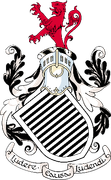View attachment 39140
JACK LAWSON
Place of Birth; Buckie (Scotland)
Nationalities; Scottish/Italian
Playing; Semi-Pro Footballer
Jack Lawson (born 17 April 1987) is a Scottish football coach and former player. Jack is the son of former Scottish football referee Iain Lawson. Jack’s background also includes some Italian descent from his mother’s (Kiara) side of the family, hence his dual nationality status.
Growing up, Jack came from a relatively quiet personal life. Having been brought up in the Highlands of Scotland, specifically, the village of Buckie, Jack was used to the quiet life. Being taught in a class of 8, in a school of 17, his social skills were never pushed in primary school like they would had he been brought up in a big suburb area as most of mainland Britain.
After leaving primary school in Buckie, Jack, like all other kids in the area, were then sent to Inverness for their secondary schooling. Making this long travel back-and-forth to Inverness every day at such a young age helped mature Jack quicker than most, and allowed him to slowly develop his social skills and increase his social group of friends he could interact with.
Away from education, Jack loved football. It was in his blood. After all his father Iain would referee games each week in the local Highland League. Every game Jack would go and watch and study what he saw. His fascination with the game, from his dad’s performance, to the players and how they played and interacted with his father, it grew and grew until Jack realised this was what he wanted. Eventually, Jack was invited to trial at local club Buckie Thistle.
Over time, Jack came up through the youth system and eventually into the first team at Buckie as a teenage striker in the early-to-mid 2000s. Despite not having a great rapport with the other players, for his quietness, Jack thrived in this environment. His maturity gained him support from the coaches, and after some rave reviews, he sparked interest from local top-tier sides Ross County and Inverness Caledonian Thistle. Despite this, no move materialised.
Playing upfront, Jack made many appearances for Buckie, scoring some key goals along the way and even managed to gain himself a cult following on Championship Manager for his potential ability. However it wasn’t too long before persistent knee injuries prematurely ended his career at the age of just 22. With his playing days over, Jack left Buckie and took-up Business Management at Aberdeen University for 3 years, until transferring to Sports Science.
Despite leaving the university with degrees in Business and Sports Science, Jack found little opportunity to put his credentials to good use and eventually he accepted a regular day job at the local BT Call Centre. It was here he met his wife, Joanna (German), and settled down. It wasn’t until years later, despite having a secure job and income, Jack began to question what he was doing with his life. With his 30th birthday approaching Jack decided to do something and set about getting in contact with the Scottish Football Association’s offices at Hampden.
Jack completed his Scouting Certificate at the SFA, before moving into the Coaching Pathway and progressing through the qualifications, earning himself the Level-C Licence. After getting some experience in the Dundee and Angus areas as a local youth coach through the schools, Lawson applied for the head of SFA's Project Brave developmental system, but failed in his application. Undeterred, Lawson has his sights set on putting his skills to use in Management.
JACK LAWSON
Place of Birth; Buckie (Scotland)
Nationalities; Scottish/Italian
Playing; Semi-Pro Footballer
Jack Lawson (born 17 April 1987) is a Scottish football coach and former player. Jack is the son of former Scottish football referee Iain Lawson. Jack’s background also includes some Italian descent from his mother’s (Kiara) side of the family, hence his dual nationality status.
Growing up, Jack came from a relatively quiet personal life. Having been brought up in the Highlands of Scotland, specifically, the village of Buckie, Jack was used to the quiet life. Being taught in a class of 8, in a school of 17, his social skills were never pushed in primary school like they would had he been brought up in a big suburb area as most of mainland Britain.
After leaving primary school in Buckie, Jack, like all other kids in the area, were then sent to Inverness for their secondary schooling. Making this long travel back-and-forth to Inverness every day at such a young age helped mature Jack quicker than most, and allowed him to slowly develop his social skills and increase his social group of friends he could interact with.
Away from education, Jack loved football. It was in his blood. After all his father Iain would referee games each week in the local Highland League. Every game Jack would go and watch and study what he saw. His fascination with the game, from his dad’s performance, to the players and how they played and interacted with his father, it grew and grew until Jack realised this was what he wanted. Eventually, Jack was invited to trial at local club Buckie Thistle.
Over time, Jack came up through the youth system and eventually into the first team at Buckie as a teenage striker in the early-to-mid 2000s. Despite not having a great rapport with the other players, for his quietness, Jack thrived in this environment. His maturity gained him support from the coaches, and after some rave reviews, he sparked interest from local top-tier sides Ross County and Inverness Caledonian Thistle. Despite this, no move materialised.
Playing upfront, Jack made many appearances for Buckie, scoring some key goals along the way and even managed to gain himself a cult following on Championship Manager for his potential ability. However it wasn’t too long before persistent knee injuries prematurely ended his career at the age of just 22. With his playing days over, Jack left Buckie and took-up Business Management at Aberdeen University for 3 years, until transferring to Sports Science.
Despite leaving the university with degrees in Business and Sports Science, Jack found little opportunity to put his credentials to good use and eventually he accepted a regular day job at the local BT Call Centre. It was here he met his wife, Joanna (German), and settled down. It wasn’t until years later, despite having a secure job and income, Jack began to question what he was doing with his life. With his 30th birthday approaching Jack decided to do something and set about getting in contact with the Scottish Football Association’s offices at Hampden.
Jack completed his Scouting Certificate at the SFA, before moving into the Coaching Pathway and progressing through the qualifications, earning himself the Level-C Licence. After getting some experience in the Dundee and Angus areas as a local youth coach through the schools, Lawson applied for the head of SFA's Project Brave developmental system, but failed in his application. Undeterred, Lawson has his sights set on putting his skills to use in Management.



